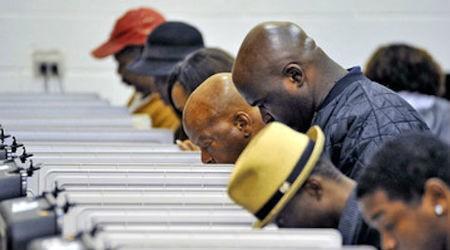Blockchain technology exploded on the scene with the introduction of cryptocurrency, and that’s where it remains within the public conversation. There is not much understanding, especially within the Black community, of the underlying technology and its usage outside of finance.
Blockchain technology is a list of records linked through cryptography. It is managed by multiple machines on a peer-to-peer network. Although it cannot be edited, it is verifiable because, in order to change the blockchain, it has to be confirmed by the majority of the network.
It makes sense for this technology to be used in finance, but what about other uses and those that apply to our neighborhoods?
Direct Payments
Since blockchain technology is a destabilized system, it negates the need for processing fees for sending money. In areas where people have no access to banks or financial institutions, this allows a person to send money directly to another person. The ride-sharing app ArcadeCity takes this idea and hopes to disrupt the disruptors, by allowing drivers to set their own prices using cryptocurrency to send funds directly from the rider to the driver with no middle man.
Imagine if the youth of tomorrow could receive payments for washing cars or cutting grass directly on their phone.
Logistics/Travel
You would be surprised by how many moving parts it takes for a package to get from one place to another. Within the U.S. alone, there are over 500,000 shipping companies – each with their own processes and operating standards. Blockchain provides a transparent record for all parties to abide by. No more arguing with the local mechanic about when the part he ordered last week will arrive, check the contract you drew up on the blockchain.
Health Records
Recently, medical records have become increasingly digitized. Unfortunately, that does not mean the records are safe. The security of the blockchain allows for personal records to live securely without risk for fraud and could allow medical records to be accessed faster by doctors and other people who need them. The patient would have to authorize anyone to access their file, giving them the ultimate empowerment.
In the back half of 2018, Massachusetts General Hospital partnered with a blockchain startup to more innovative ways ways to store patient information. As blockchain creeps deeper into public life we should see more partnerships like these come to the forefront.
Mortgage/Home-Buying/Ownership Records
If you ask anyone who has been through it, the home buying process is complicated. In addition to the elimination of paper trails, home-buyers can store their title on the blockchain providing a transparent, yet unchanging record of ownership.
Last year Cook County launched a pilot program exploring this very thing and focused on things like title insurance and the advantages and disadvantages that would come with using blockchain for it.
Voting
By having citizens vote through the blockchain, governments can empower constituents to take more stock in the political system. More people would be able to vote more consistently. In fact, a program was launched in West Virginia last year that allowed people serving in the military overseas to vote from their phones using blockchain. There’s still much debate, however, around whether or not blockchain would actually make our voting and elections more secure.
Copyright/Royalty Payments
Musicians can rest easy knowing their art will forever be attributed to them through the blockchain. The fact that the record cannot be altered will ensure that royalty payments are routed to the right person on time. One Atlanta based startup, The Labz, has already begun tackling this issue.
















